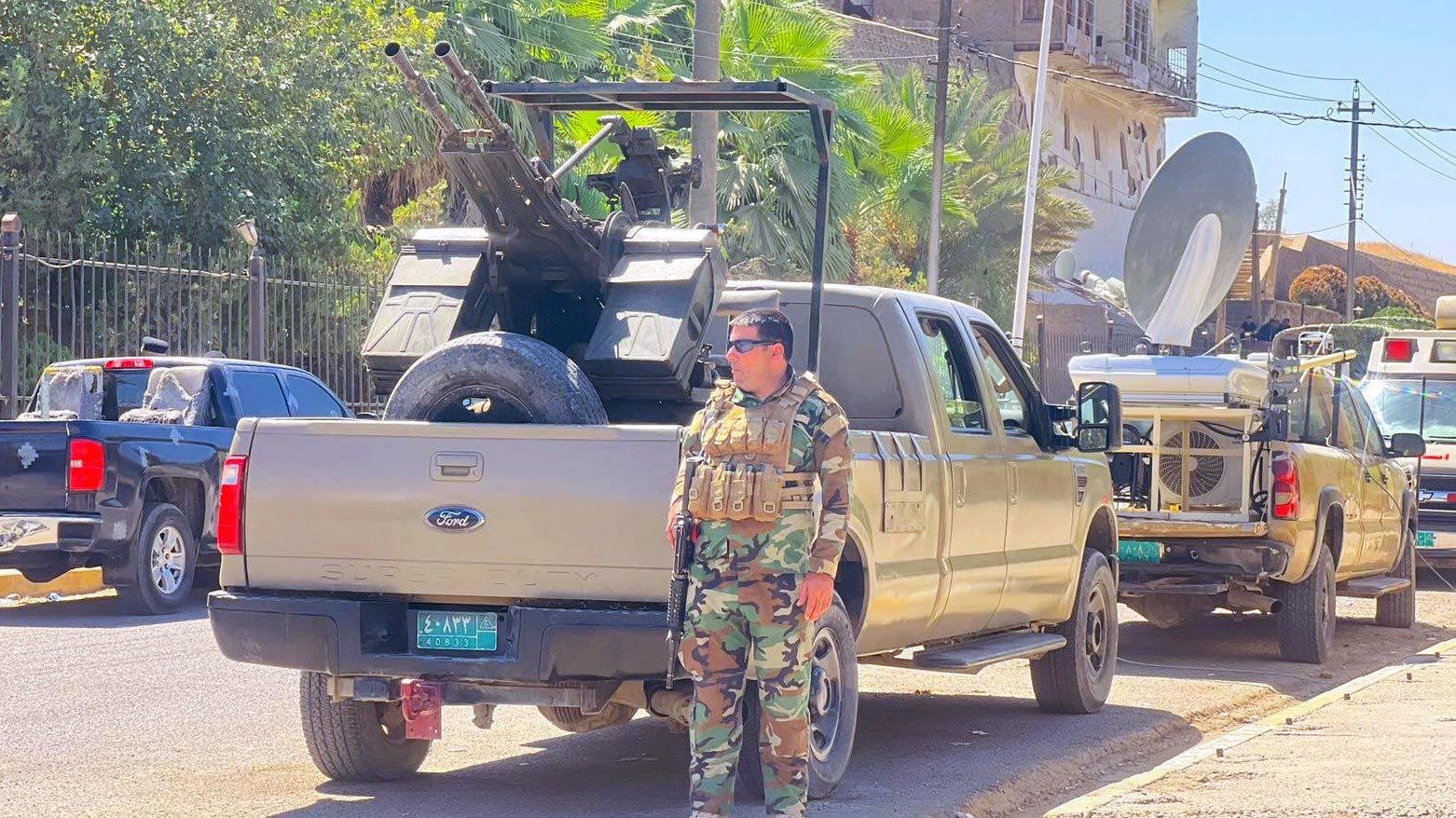Iraqi PM should investigate protestor deaths in Kirkuk: HRW

ERBIL (Kurdistan 24) – Human Rights Watch (HRW) on Friday called on Iraqi Prime Minister Mohammed Shia al-Sudani to carry out an independent and impartial in its investigation of allegations of excessive use of deadly force by Iraqi security forces.
Iraq: Security Forces Open Fire on Kirkuk Protesters https://t.co/G0wSpyi9SR
— Human Rights Watch (@hrw) September 8, 2023
Read More: Critically wounded Kirkuk protester receives emergency care in Erbil
HRW said it appears Iraqi security forces without warning have opened fire on Kurdish demonstrators without prior warning in Kirkuk on September 2, 2023, killing at least 4 people and injuring 16.
A protest took place on Saturday by Kurds against the closure of the Kirkuk-Erbil road by the supporters of the Popular Mobilization Forces (PMF), following the latter's opposition to the handover of the KDP headquarters on Aug. 28, as mandated by Prime Minister Shia al-Sudani.
The Iraqi PM Mohammed Shia Al Sudani is scheduled to visit Kirkuk on Saturday to discuss the recent events. On Friday, there was a heavy deployment of Iraqi security forces near Kirkuk's citadel.
Read More: President Nechirvan Barzani calls for justice after two protestors killed in Kirkuk
The Iraqi PM Sudani also earlier directed the formation of an investigative committee to uncover the circumstances surrounding the killings and injuries of protesters.
The Kurdistan Democratic Party on Thursday called for the formation of a joint KRG-Iraqi government investigation committee into the violations committed against Kurdish protestors.
Human Rights Watch said that the Iraqi government should make the preliminary findings of the investigation public as soon as possible, and where evidence of wrongdoing has been found, bring those responsible to justice in fair trials.
“Time and again, the Iraqi government has responded to protests with lethal force and arrests of journalists,” said Sarah Sanbar, Iraq researcher at Human Rights Watch (HRW). “The government needs to take concrete steps that result in accountability for these actions.”
Hazhar Ramadan, a Kurdish resident of Kirkuk, told Human Rights Watch that his brother was shot and killed during the incident.
“My brother Hawkar Abdullah Ramadan, age 38 and a father of four children, tragically lost his life during a demonstration in Kirkuk,” he said. “He was fatally shot twice in the heart. His only ‘crime’ was proudly displaying the Kurdistan flag.”
Hemin Dalo, a reporter for Kurdistan24, told Human Rights Watch (HRW) that his team received a summons from the Iraqi National Security Service to appear at their office in Kirkuk following the violence. “We chose not to comply,” Dalo said. “Our staff has faced numerous instances of harassment from security forces and local authorities in Kirkuk since 2017.”
Moreover, HRW said that the Iraqi government has yet to provide justice for the deaths of over 600 protestors and the wounding of 20,000 more during the October 2019 protests over corruption and lack of services, known as the Tishreen movement.
“The Iraqi government’s standard response to instances of violence against protesters is to open an investigation, but they rarely amount to anything,” Sanbar said. “This latest investigation should instead set a new and better standard, ensuring that justice is served for victims and their families.”
Mohammed A. Salih, senior fellow at the U.S-based Foreign Policy Research Institute, told Kurdistan 24 that it "requires a great deal of optimism to expect a fair and impartial investigation to be conducted into this matter, given the nature of Iraqi political system and the composition of its actors."
"The judiciary has already shown a strong bias against Kurds as manifest in its recent ruling on Kirkuk. And the government is dominated by Shia groups deeply hostile to Kurds and their political standing and stature in the country."
